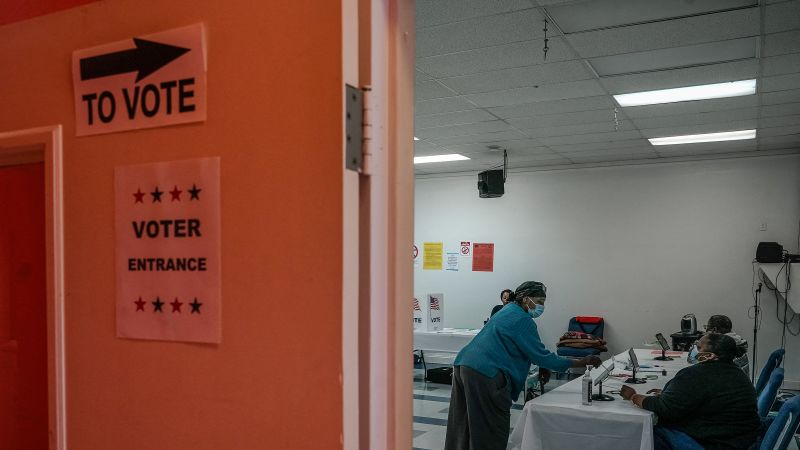Georgia lawmakers recently passed a Republican-backed election bill that is now awaiting approval from Governor Brian Kemp. The bill includes new rules for challenging voter eligibility and makes it easier for third-party or independent candidates to qualify for the presidential ballot in the state. This legislation could have significant implications for the upcoming elections in Georgia, which is considered a closely watched battleground state.
The bill allows any political party or political body that has obtained ballot access in at least 20 states or territories to qualify for Georgia’s presidential ballot. This provision could benefit third-party or independent candidates who are seeking to be included on the ballot for the 2022 elections. Independent candidate Robert F. Kennedy Jr. is one such candidate who has been making efforts to gather enough signatures to qualify for the ballot in Georgia.
Kennedy’s campaign, which aims to be on the ballot in all 50 states, recently named Nicole Shanahan as his running mate. However, there are concerns among some Democrats that Kennedy could serve as a spoiler candidate and potentially impact the election outcome by dividing votes in favor of the Republican candidate. Currently, independent or third-party candidates in Georgia must collect a minimum of 7,500 signatures from registered voters to qualify for the ballot.
The Georgia legislature, controlled by Republicans, has passed this election legislation, including provisions that would make it easier for third-party candidates to qualify for the presidential ballot and broaden the criteria for voter registration challenges. Governor Kemp has not indicated whether he plans to sign the bill but has 40 days to make a decision. The bill also includes changes to the criteria for upholding challenges to voter registrations, with a focus on preventing voter fraud.
Following the 2020 election, which led to false claims of voter fraud in Georgia, there has been an increase in voter eligibility challenges filed by individual activists. The new legislation aims to address these challenges and increase confidence in the election process. However, voting rights groups have raised concerns about the provisions in the bill, including the rules for voter challenges. The ACLU of Georgia has threatened to sue if the bill is signed into law.
Overall, the Republican-backed election legislation in Georgia includes provisions that could impact the upcoming elections in the state, particularly regarding the qualifications for third-party or independent candidates to appear on the presidential ballot. The bill also aims to address concerns about voter fraud by broadening the criteria for voter registration challenges. Governor Kemp has yet to decide on whether to sign the bill, but it has raised objections from voting rights groups who are concerned about its impact on voter participation and access to the ballot.















